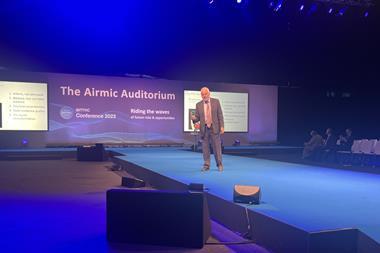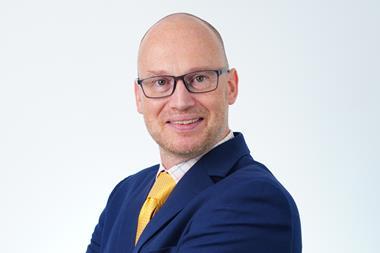Many would have us believe that the attacks on the World Trade Center were the catalyst for our troubles. This is clearly not the case. Geoffrey Johnson, one of our members, highlighted the considerable hardening of the market, in a compelling and, for many risk managers, all too real presentation to the last AIRMIC conference. The difficulties he had encountered in renewing his insurance cover were "more expensive and painful than we had envisaged". Rick Hudson from Royal & SunAlliance picked up on the theme, spelling out a number of reasons for the situation and indicating that corrective action would be essential to the well being of the industry. Unsustainable rates and inadequate reserving for claims were major problem areas.
AIRMIC has acknowledged that our members are facing severe problems, arising in particular from the hardening property insurance market. Commenting on this to the Financial Times, David Gamble, our executive director, said: "These problems are being exacerbated by the insurers applying the more stringent disciplines of banking when assessing the return on their capital.
"While AIRMIC fully understands and supports the need for the insurance industry to make a satisfactory return, it feels the industry has been poor in communicating these fundamental changes in its approach. Many AIRMIC members will be forced to investigate alternative means for risk financing, or will be working to improve their risk management." This remains the case today and we see no reason for it to change in the foreseeable future.
Innovative but foolish, Independent Insurance collapsed, leaving a great number of corporate clients without cover and in urgent need of assistance. The market responded, though at a price. This collapse was a double blow to these corporate clients, as not only were premiums to be paid again, but also outstanding claims would have to be met, with the exception of those statutory classes protected by the Policyholders Protection Board, and with little prospect of recovery.
All of these issues have provoked a strong response from AIRMIC and a thirst for knowledge and information amongst its members. Meetings with record attendances have been held up and down the country, involving our friends in all sectors of the industry and many very concerned AIRMIC members. Never have networking and information exchange between our membership been more important or useful.
Further surprises came in the shape of the failure of Enron and the loss suffered by Allied Irish Bank. It is too early to say what the repercussions will be. Equally we do not know what the long term impact of the Government's decision to task the Financial Services Authority (FSA) with regulating the industry will be. We did, however, get a fascinating insight recently at the annual AIRMIC lecture given by the FSA chairman Sir Howard Davies. His comments were rather controversial, and prompted much press comment. I suspect the implications for the industry have yet to be fully appreciated.
AIRMIC gave a cautious welcome to what Sir Howard had to say, but we expressed our concern that the FSA, in merging so many different regulatory cultures, will need to guard against a possible failure of communication.
Terrorism - or rather the withdrawal of some terrorism cover - is another serious issue for our members. This is one area where we can agree that September 11 did set in course a chain of events. Where we may disagree is in the way in which it has been handled. It is particularly disappointing bearing in mind the UK's previous experience following the IRA bombing campaigns and the establishment of Pool Re.
Aviation was the first sector to suffer, for obvious reasons and because of the way in which cover is arranged. However, invoking a seven-day cancellation or revision clause never leaves a client with easy options and the resulting frenzied activity to find cover and keep aircraft flying was proof of this. AIRMIC provided, and continues to provide considerable assistance to its members in this business sector and helped flag up the problems with the Government. The immediate crisis was alleviated, with the Government standing in as insurer of last resort until an alternative market could be found.
In other classes, some AIRMIC members with large property portfolios are experiencing the withdrawal of cover by the imposition of very widely worded terrorism exclusions. AIRMIC has made strong representations to the Association of British Insurers (ABI), to individual insurers and to the Government, via the Treasury. We are stressing that in Pool Re we have a unique vehicle to help fill the void, but changes are necessary to achieve the desired result.
A number of hurdles still need to be crossed, but at least the Treasury are prepared to listen and to discuss how Pool Re's remit might be extended to cover the balance of perils over aircraft and explosion for property and business interruption cover.



















